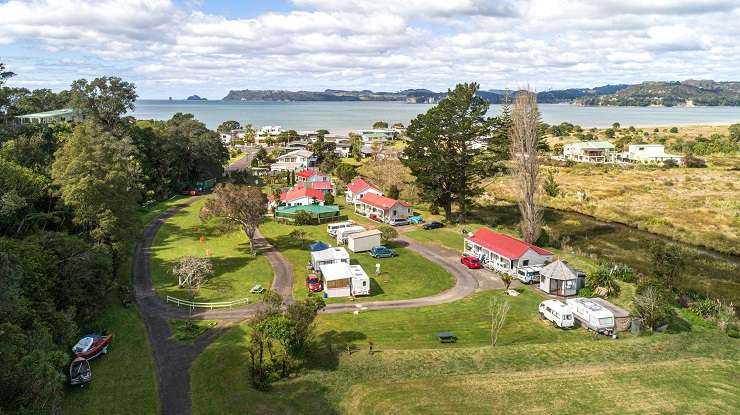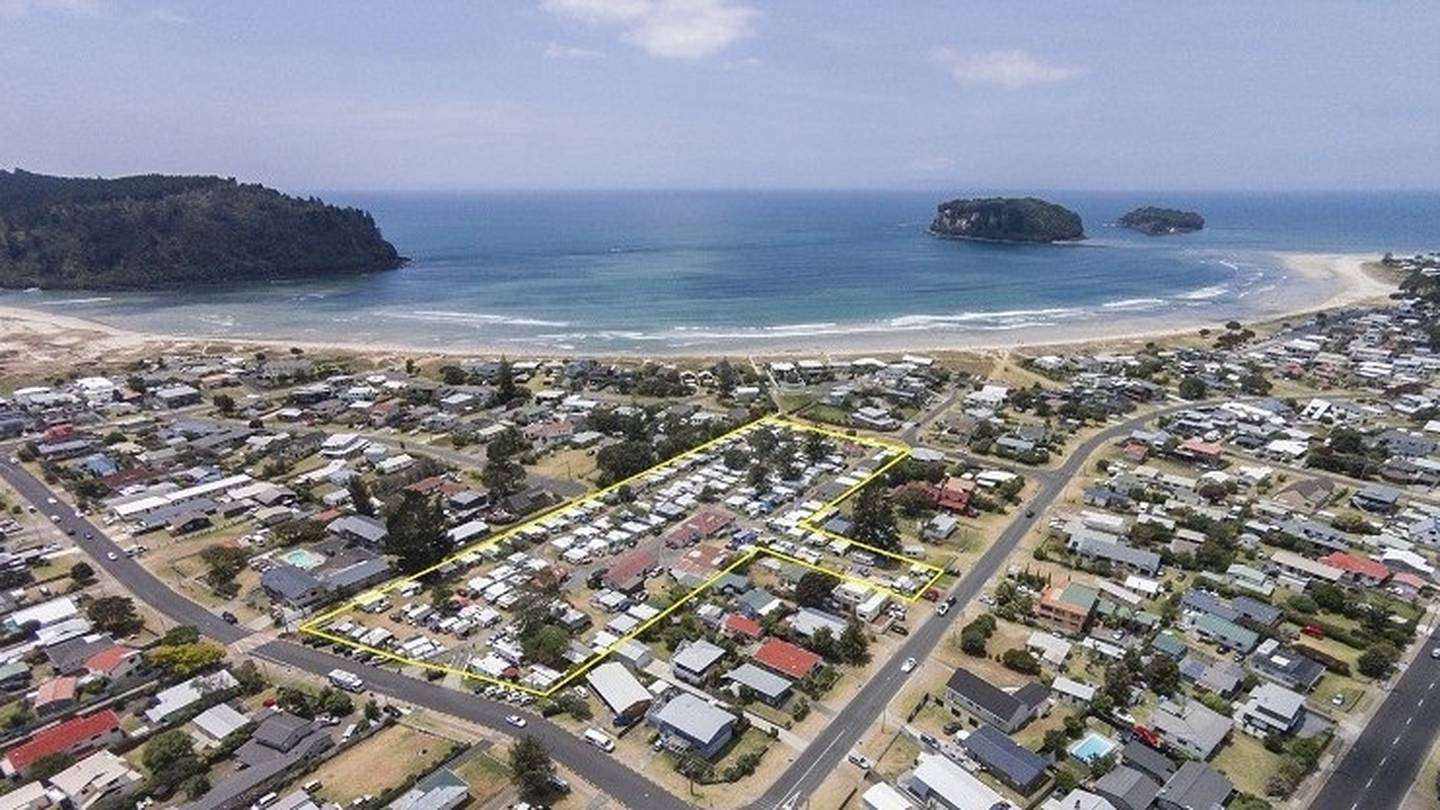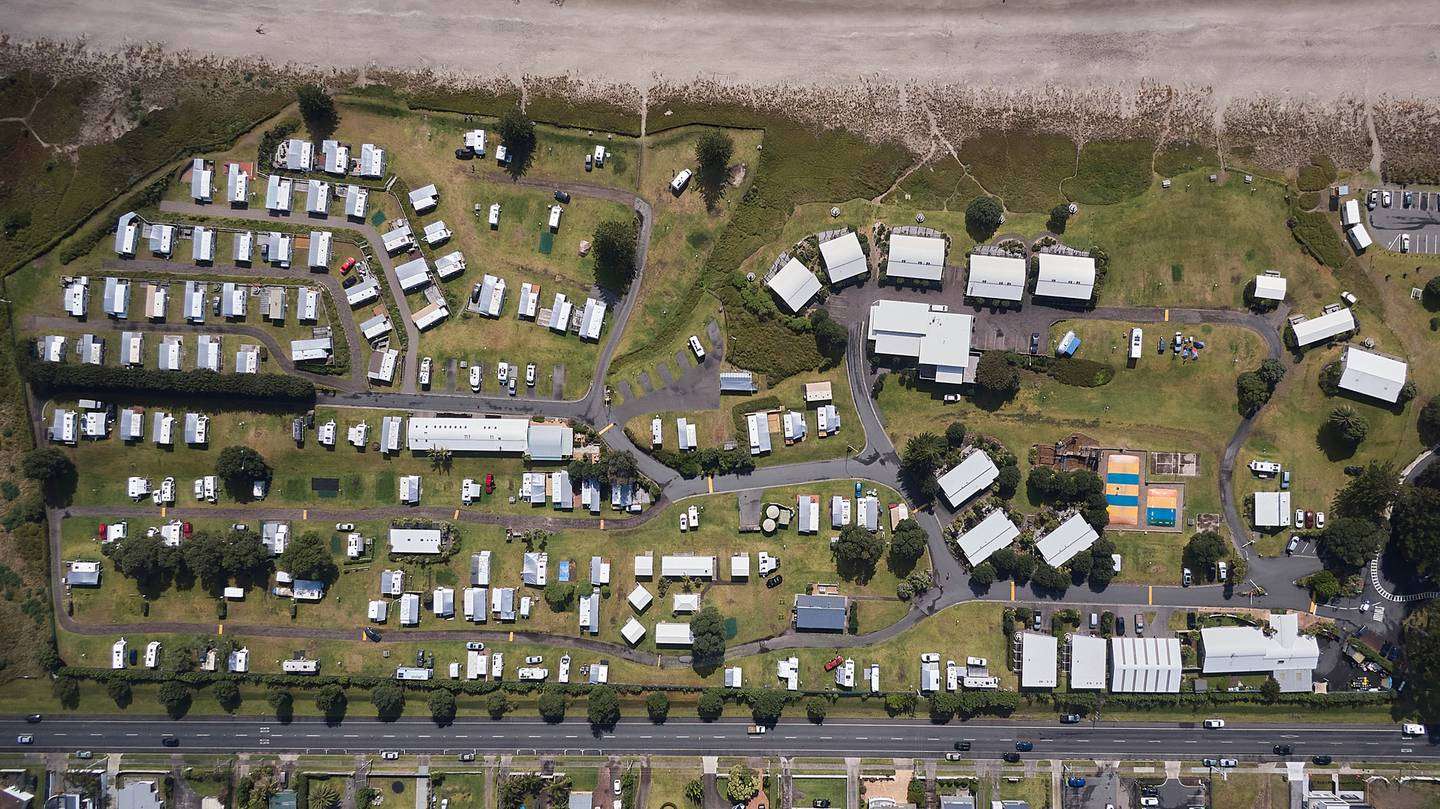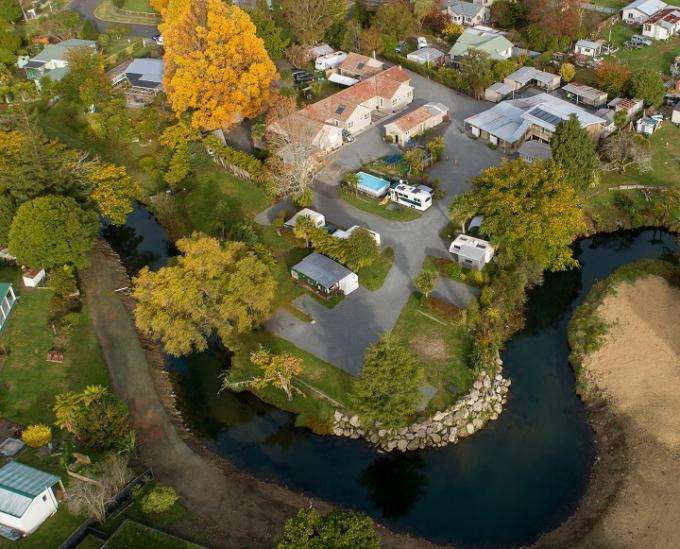Some iconic Kiwi holiday parks and campgrounds may soon be making way for apartments as developers eye up valuable beach side land.
“Most of these sites are sold to be developed in the future, the land value will be for long term holds,” says Bayleys commercial sales and leasing broker Josh Smith.
Waikato-based Smith, who is currently marketing the Whitianga campground, says that large landholdings close to popular Coromandel beach resorts are rare.

Start your property search
The campground at Whitianga is being marketed as a holiday park or as a land bank with future development potential. Photo / Supplied
“In every one of these towns, land is less and less available and these are big landholdings. Developers are savvy, and have the capability to hold these, eventually to do 20 or 30 apartments. The asset value is outstripping the value [of the campground] as a business.
“The banks don’t lend on that, so you’re dealing with a wealthy developer who can eliminate everyone else.”
Like all the agents OneRoof spoke to, Smith could not comment on the sale this summer of the Whangamata Motor Camp but said that land in the resort town was the most sought after on the Peninsula so would be extremely valuable.

Real estate agents say that valuable camp ground sites in beach towns such as Whangamata are often worth more to developers for the land than as going businesses. Photo / Supplied
The campground has been owned by commercial property investment company Key Capital. Director Wayne Leach confirmed the sale, but said confidentiality agreements meant he could not disclose the price, settlement terms nor the new owners' plans for the park.
"I've been coming to Whanga for 30 years and owned the campground for 19 years. I'm passionate about it, it's been a good campground, but nothing stays the same forever," he says.
When it was last on the market in 2015 the campground was expected to get $8 to $10 million, but Smith points to the Hahei campground, further up the Peninsula, which sold for $11.88 million in 2015 would have almost doubled in value now.
Fergus Brown, chief executive of the Holiday Parks Association, is not concerned that the recent flurry of sales is reducing the number of campgrounds available for Kiwis.
“It’s a mixture with the bigger parks sold as going concerns, that reflects a strong business. People are seeing past Covid’s impact, that holiday parks are a good business and will come back,” he says.

Papamoa Beach Resort, which sits on leased reserve land, was recently sold to Australian operator Tasman Tourism. Photo / George Novak
Brown says that during the GFC eight or nine campgrounds disappeared. Now, the number of parks is stable at around 300 nationwide.
But he admits recent sales for development of two city-centre campgrounds in Christchurch show that “it’s a land issue, when it gets more valuable it’s a better use [as a development].
“It’s the old story, everyone is on the market for the right price.”
Brown is heartened by the recent purchases of three Bay of Plenty parks by Australian operator Tasman Tourism, which owns seven holiday parks in Australia.

Buyers are looking at re-purposing holiday parks such as this one at Ngongataha, Rotorua, into permanent accommodation. Photo / Supplied
Real estate agents say the company is looking to add to its New Zealand portfolio and has the capital and savvy to grow previously mum and dad businesses.
“These are all on council land, so that’s a good thing for New Zealand. They want to make the product better, for a better return on investment,” Brown says.
Barfoot & Thompson commercial agent Allen Beagley, who is marketing the Top 10 Holiday Park in Northland’s Russell, says that businesses have been getting good prices as a going concern.
Many of those operate on land leased from local councils, but those sold with business, land and buildings are attractive for long-term holds for the land value of the site for future development.
In some cases, campgrounds have value in being converted into other accommodation.
Colliers agent Mark Rendell, who is marketing the holiday park at Ngongataha, Rotorua. says some buyers are thinking of switching the property's motel rooms and cabins to longer term rentals to meet the tourist town’s housing shortage.
Bayleys agent John Greenwood, who is marketing the Bay of Islands holiday park near the Waitangi River on the edge of Paihia is optimistic that while in the past parks have changed hands as land-only deals, today's strong businesses will stay.
“Developers can’t really afford to buy them because the business is so good. Some are not zoned for residential, so people are not keen on taking the risk to get them re-zoned. The camper-van business is saving them.”
- Additional reporting Samantha Motion, Bay of Plenty Times
* A previous version of this story stated that a Tiny House development had been proposed on the site of a former campground in Muriwai. The proposed development is not on the site of Muriwai Beach Campground, which is a separate site and still in operation. OneRoof apologises for the error.







































































